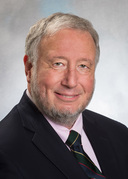|
Jerry Avorn, MD | NaRCAD Co-director Tags: Detailing Visits, Evidence-Based Medicine, Jerry Avorn, Primary Care There was a brief shining moment starting in the early 1970s, when I was finishing medical school, that lasted into about the mid-1980s. Primary care physicians (PCPs) seemed poised to rise above their lowest-in-medicine stature to become recognized for playing a central role in the entire health care system (as, of course, they had been doing all along). In medical centers throughout the country, growing interest in ‘health maintenance’ and its accompanying insurance designs seemed poised to catapult PCPs from the role of nerds to quarterbacks. Then, for reasons we don’t have the space to discuss here, in the following years in many settings, the quarterbacks got recast as gatekeepers, and then as switchboard operators. Delivering primary medical care remained as innately vital and sacred a job as ever, but the stature and daily work of the PCP (with the second P now standing for ‘provider’) became degraded in many settings. Morale sank, and PCP burnout and dropout became more common. What does all this have to do with academic detailing? A lot. One of the most frequent and visible ways that the quarterback-to-gatekeeper degradation has developed is in the role of clinical decision-making – for medications most often, but also about test ordering, specialist consultations, and many other choices the primary care clinician faces daily. In the Olden Times, which still survive in some pockets of our pathologically heterogeneous coverage system, these decisions are still left in the hands of the PCP, and are still made well or poorly by individuals. But increasingly, such choices are driven by formularies, prior authorization requirements, algorithms, and other restrictions. Sometimes these are thoughtful, evidence-based guidances that are useful antidotes to the occasional wild and crazy choices some practitioners occasionally make – ‘freedom’ which can on occasion lead to potential harm to both patients and health care budgets. But sometimes the restrictions are simple-minded, financially-driven, and disrespectful of the needs of specific patients and the nuanced judgment of the individual clinician. That’s where academic detailing comes in. There will always be a place for formulary limitations and restriction of the worst non-evidence-based decisionmaking. But wouldn’t we all rather live in a medical world in which decisions are primarily shaped by the informed decisions of a well-trained health care professional, updated through discussion of the latest data? Especially if that information was provided by another savvy clinician equipped to have a back-and-forth conversation about the basis and the pros and cons of trial findings, guidelines, and observational research? That would help primary care clinicians make better decisions without all the limitations of arbitrary insurance requirements, or computer-based algorithms that sometimes function as if they know Mrs. Johnson better than her doctor does. It could also pave the way for wider adoption of the evidence-based recommendations that the more enlightened policies seek to achieve. And clinicians could again feel more like the health care professionals we spent so many years learning how to be. Join us for Dr. Avorn's annual conference talk at #NaRCAD2016: Innovations in Clinical Outreach Education.  Biography. Jerry Avorn, MD | NaRCAD Co-Director Dr. Avorn is Professor of Medicine at Harvard Medical School and Chief of the Division of Pharmacoepidemiology and Pharmacoeconomics (DoPE) at Brigham & Women's Hospital. A general internist, geriatrician, and drug epidemiologist, he pioneered the concept of academic detailing and is recognized internationally as a leading expert on this topic and on optimal medication use, particularly in the elderly. Read more.
0 Comments
Leave a Reply. |
Highlighting Best PracticesWe highlight what's working in clinical education through interviews, features, event recaps, and guest blogs, offering clinical educators the chance to share successes and lessons learned from around the country & beyond. Search Archives
|
